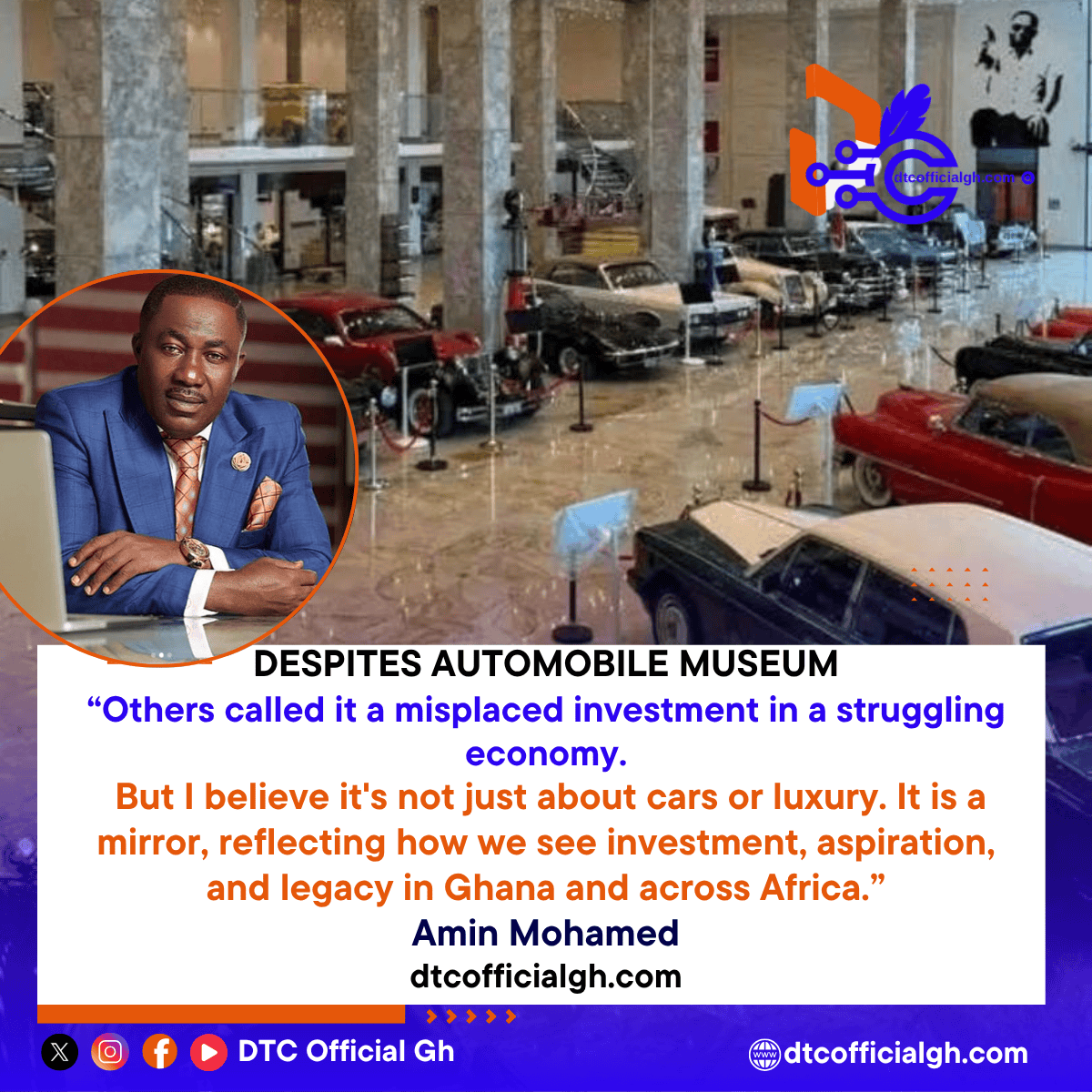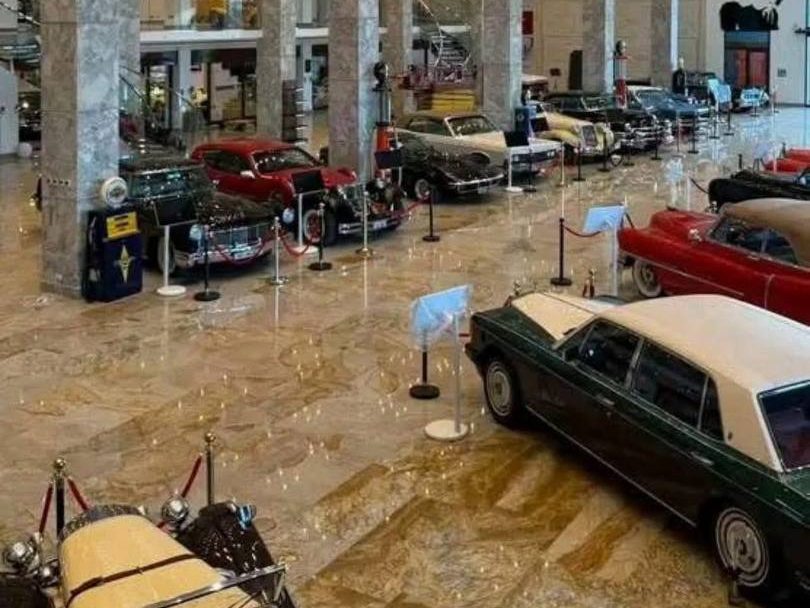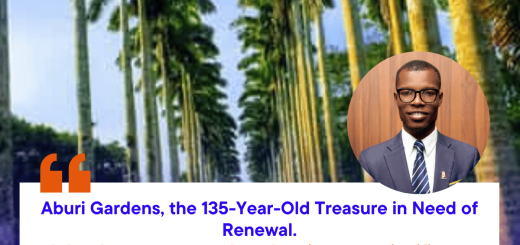Despite’s Automobile Museum: A Misplaced Investment or a Catalyst for Economic Imagination?

Over the past week, conversations on social media and in mainstream circles have been lit with opinions following the unveiling of Dr. Osei Kwame Despite’s Automobile Museum, a high-end automotive collection housed in Accra. Some Ghanaians celebrated it as a bold, world-class initiative. Others called it a misplaced investment in a struggling economy.

As someone who spends his days helping people reimagine what’s possible through mindset transformation, youth empowerment, and innovation advocacy, I believe this project is not just about cars or luxury. It is a mirror, reflecting how we see investment, aspiration, and legacy in Ghana and across Africa.
- A Private Investment with Public Ripple Effects
One thing we often overlook is this: Every bold private investment has public ripple effects. The museum may have been funded by private wealth, but its economic impact stretches into the public domain, jobs created, local tourism stimulated, and opportunities birthed for entrepreneurs and creatives.
Imagine the hotel owner around East Legon who will now receive more guests. The Uber driver who finds new routes. The local fashion photographer who sees the museum as a dream shoot location. These are not far-off possibilities, they are immediate realities. That’s how value flows.
- A Magnet for Local and Diaspora Tourism
Since the “Year of Return,” Ghana has seen a steady increase in diaspora tourism. What we haven’t done enough of is create niche attractions to hold the interest of returning diasporans, business tourists, and affluent travellers.
For more insights and inspiring stories , kindly follow us on Twitter and WhatsApp for more.
Despite’s museum now competes, not with Makola Market or Cape Coast Castle, but with car shows in Dubai, heritage museums in Germany, and innovation galleries in the U.S. It says: “Luxury, legacy, and storytelling can thrive in Africa too.”
- A New Language of Inspiration for the Youth
As a transformation coach and someone who has mentored over 200 young leaders, I often say this: Our youth need to see African success stories not just in the form of speeches, but in the form of structures.
READ ALSO: Thirty-two African startups raised $180 in funding.
This museum is a structure. It speaks a language beyond motivation, it tells young inventors, engineers, and collectors that it’s possible to dream big, build well, and leave legacy behind.
What if our universities collaborated with the museum to host automotive innovation challenges? What if Kantanka Automobiles leveraged it as a showcase platform? What if this sparks an entire industry around African-made collectibles?
- From Showpiece to Ecosystem
At first glance, the museum seems like a rich man’s indulgence. But in reality, it’s a potential ecosystem enabler, for events, exhibitions, hospitality, merchandising, education, and cultural storytelling. The key lies in how we integrate it into our economic vision.
MUST READ: From Banker to Restaurateur; The Birth Of a Revolutionary Idea
We must move from just looking at structures to strategically activating them. That’s how developed nations turn museums into billion-dollar economies.

- On Criticism and Public Expectations
Some critics argue that the money could have been better used, perhaps in building schools or hospitals. I understand that sentiment. But we must be careful not to punish vision just because it doesn’t look like charity.
For more insights and inspiring stories , kindly follow us on Twitter and WhatsApp for more.
True national development doesn’t only come from government budgets. It comes from bold citizens who dare to do what the public sector has neither the speed nor the imagination to accomplish.
Dr. Despite’s museum is not an answer to Ghana’s economic problems. But it is a spark. And sometimes, all we need is a spark to ignite industry.

In Conclusion: Don’t Just Watch It, Leverage It
As we debate this project, let’s not get stuck in the old Ghanaian loop of cynicism. Let’s ask:
• How can we involve students in museum programming?
• How can we plug this into the Africa Continental Free Trade conversation through cultural tourism?
• How can we replicate this level of excellence in other sectors?
For more insights and inspiring stories , kindly follow us on Twitter and WhatsApp for more.
Let’s not just critique the dream, let’s collaborate with it, build around it, and allow it to expand our collective imagination. Because at the end of the day, progress is not always painted in schools and hospitals alone. Sometimes, it’s painted in chrome, history, and horsepower.




2 Responses
[…] READ ALSO: Despite’s Automobile Museum: A Misplaced Investment or a Catalyst for Economic Imagination? […]
[…] READ ALSO: Despite’s Automobile Museum: A Misplaced Investment or a Catalyst for Economic Imagination? […]